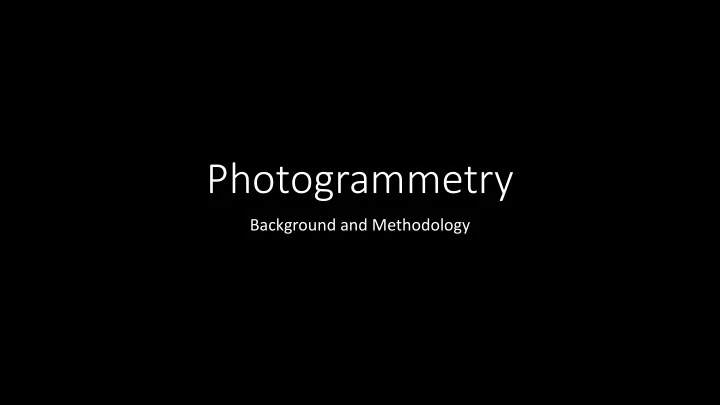

Photogrammetry Background and Methodology
Photogrammetry: what is it? • Image measurement and interpretation in order to derive the shape and location of an object from one or more photographs of that object • Today it is a computerized process that produces spatial accuracy from photographs • Creates an output: map, drawing, measurement, 3D model
Types of Photogrammetry • Aerial Photogrammetry: Plans, Maps, Models • Field Photogrammetry (Complex subject): Architecture, Contexts, in- situ Objects • Lab Photogrammetry (Simple subject): Objects, Artifacts
Workflow • Capture the Subject • Set-up • Good Photography • Good Geometry • Image Preprocessing • 3D Modeling
Capture the Subject: Set-Up
• IDEAL SETTINGS: • Aperture: f/16-f/22 • Shutter: 1/60-1/125 • ISO: 100=200 Capture the Subject: Good Photography
Capture the Subject: Good Geometry • Can be done in the lab or in the field • 360° in the round; 36 photos every 10 ° • Subject on a turntable, at least 3 angles • Straight • Top angled down • Bottom angled up • 38 photos – 36 per circuit + 1 with color card + 1 of background • Include a “flat run” with scale bars for accuracy and color card for color correction
Image Pre-Processing: Color Correction Raw Photo, No Processing Tif after pre-processing
3D Modeling Solid Mesh Dense Cloud Textured and Tiled Model Wireframe Mesh
Output • 3D PDF • Sketchfab • https://sketchfab.com/BrynMawrCollege
Recommend
More recommend